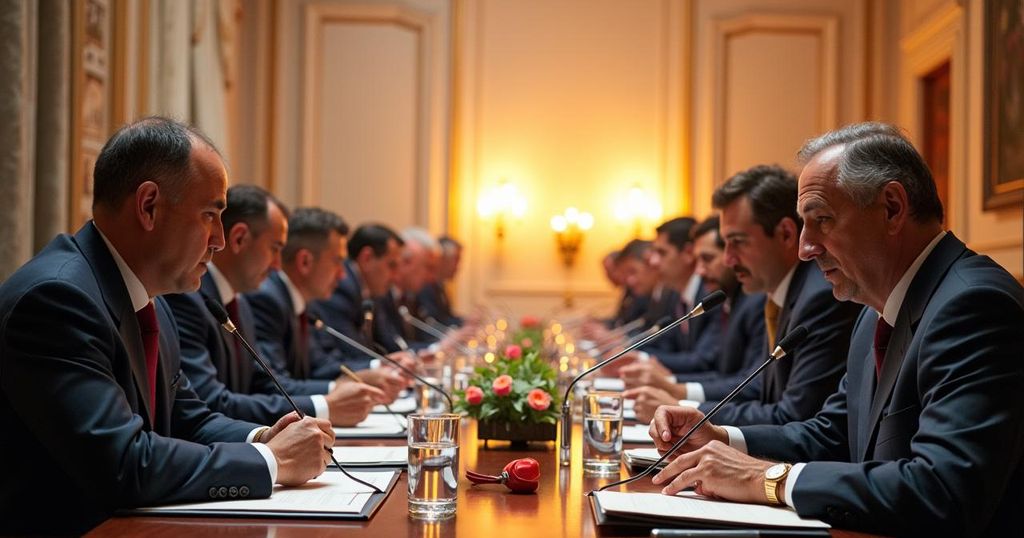U.S. Seeks New Initiatives to Resolve Lebanon’s Political Stalemate
The U.S. is seeking to leverage a perceived opportunity to resolve Lebanon’s political deadlock, particularly the election of a new president, to mitigate tensions in the region. Secretary of State Antony Blinken has discussed these efforts with key international counterparts amid concerns over Hezbollah’s influence and Lebanon’s escalating economic crisis.
The United States, observing a potential opportunity to address the protracted political deadlock in Lebanon, aims to facilitate a renewed approach to ease the ongoing conflict. Secretary of State Antony Blinken has engaged in discussions with representatives from Saudi Arabia, Qatar, and France, emphasizing the significance of electing a new Lebanese president as a pivotal step towards reducing tensions in the region. He underscored the necessity for Lebanon to reclaim its sovereignty and governance, stating, “It’s clear that the people of Lebanon have an interest, a strong interest, in the state asserting itself and taking responsibility for the country and its future.” Currently, Lebanon has been experiencing a presidential vacancy for two years, exacerbating the state’s political and economic crises that leave three-quarters of its population in poverty. As the political stagnation persists, Hezbollah’s recent military degradation, attributed to Israeli operations, has led some U.S. officials to believe that there may be a window of opportunity for progress. However, skepticism remains regarding Hezbollah’s entrenched influence in Lebanese politics and society. The Secretary of State is preparing to attend an international conference in France focusing on Lebanon, indicating continued U.S. interest in fostering a diplomatic resolution. Blinken reiterated his commitment to supporting Lebanese institutions and stressed the importance of implementing United Nations Security Council Resolution 1701, which calls for the withdrawal of Israeli forces from southern Lebanon. Ed Gabriel, president of the American Task Force on Lebanon, accentuated the need for a competent and reform-minded leadership in Lebanon, advocating that the Lebanese parliamentarians convene to elect a president capable of navigating the critical phase the country currently faces.
Lebanon has been ensnared in a political crisis characterized by a long-standing feud between various factions, primarily exacerbated by the Iranian-backed Hezbollah’s influence. The political landscape is heavily reliant on a sectarian power-sharing system, often resulting in impasses that prevent the election of a president. The presidency has been vacant since October 2022, following the end of former President Michel Aoun’s term. There have been numerous unsuccessful attempts by Lebanon’s parliament to elect a successor, primarily due to Hezbollah’s backing of a particular candidate, Sleiman Frangieh, amidst opposition from other political factions. This political deadlock has profound implications for a nation grappling with an economic collapse that has plunged the majority of its citizens into poverty.
In summary, the United States is exploring new avenues to resolve the political crisis in Lebanon, particularly through the potential election of a new president. While there is an emerging consensus on the need for Lebanon to reassert its sovereignty, significant challenges lie ahead due to Hezbollah’s entrenched political presence. The upcoming international conference in France highlights the urgency of the situation as the U.S. continues to collaborate with regional allies to facilitate a resolution that addresses the underlying issues affecting Lebanon’s stability.
Original Source: apnews.com




Post Comment